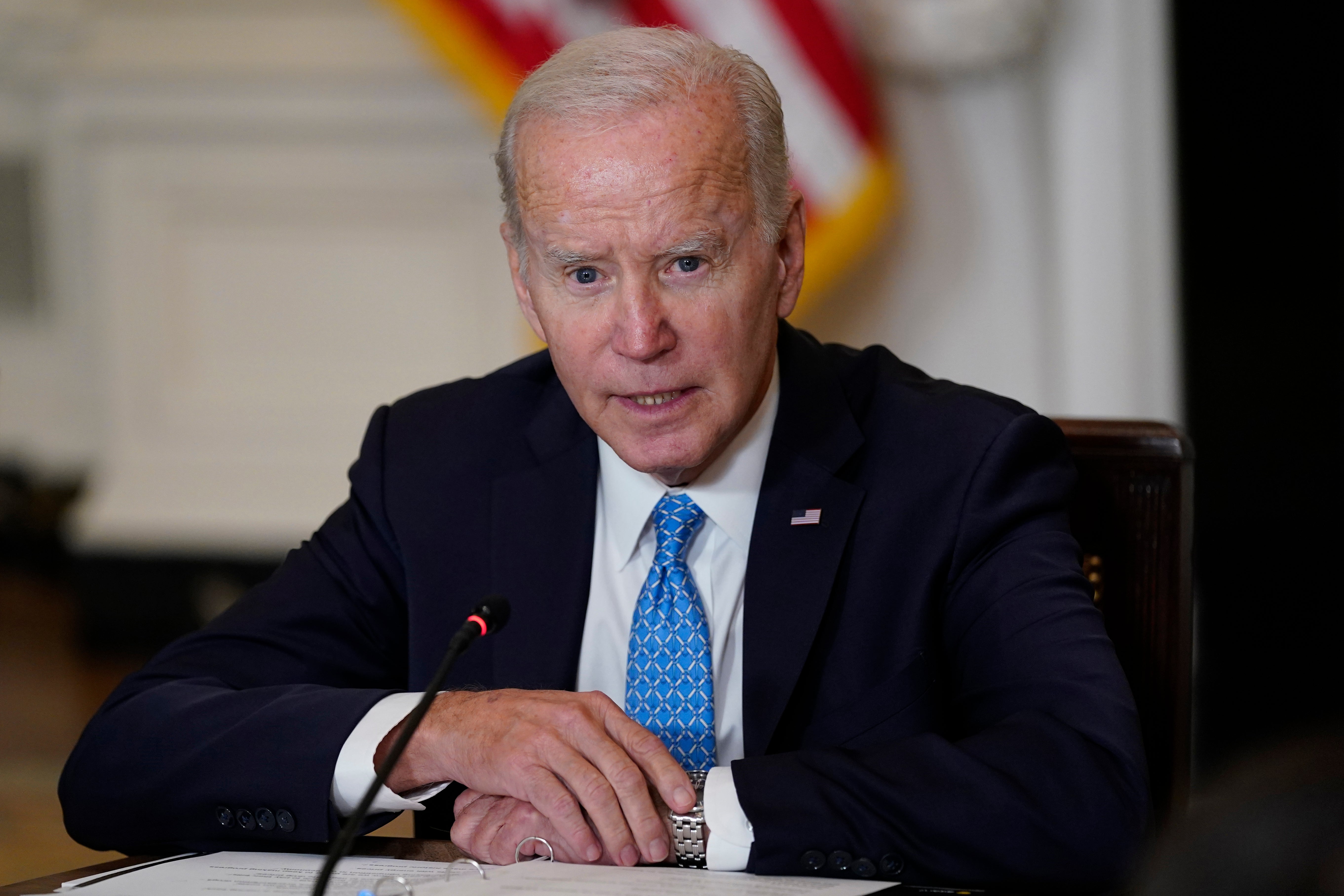Biden's strategy to end hunger in US includes more benefits
The Biden administration has an ambitious goal for America: ending hunger in the U.S. by 2030

Your support helps us to tell the story
From reproductive rights to climate change to Big Tech, The Independent is on the ground when the story is developing. Whether it's investigating the financials of Elon Musk's pro-Trump PAC or producing our latest documentary, 'The A Word', which shines a light on the American women fighting for reproductive rights, we know how important it is to parse out the facts from the messaging.
At such a critical moment in US history, we need reporters on the ground. Your donation allows us to keep sending journalists to speak to both sides of the story.
The Independent is trusted by Americans across the entire political spectrum. And unlike many other quality news outlets, we choose not to lock Americans out of our reporting and analysis with paywalls. We believe quality journalism should be available to everyone, paid for by those who can afford it.
Your support makes all the difference.The Biden administration is laying out its plan to meet an ambitious goal of ending hunger in the U.S. by 2030, including expanding monthly benefits that help low-income Americans buy food.
The administration, in a plan released Tuesday, is also seeking to increase healthy eating and physical activity so that fewer people are afflicted with diabetes, obesity, hypertension and other diet-related diseases. It said it would work to expand Medicaid and Medicare access to obesity counseling and nutrition.
“The consequences of food insecurity and diet-related diseases are significant, far reaching, and disproportionately impact historically underserved communities,” Biden wrote in a memo outlining the White House strategy. “Yet, food insecurity and diet-related diseases are largely preventable, if we prioritize the health of the nation.”
Biden is hosting a conference this week on hunger, nutrition and health, the first by the White House since 1969. That conference, under President Richard Nixon, was a pivotal moment that influenced the U.S. food policy agenda for 50 years. It led to a greatly expanded food stamps program and gave rise to the Women, Infants and Children program, which serves half the babies born in the U.S. by providing women with parenting advice, breastfeeding support and food assistance.
Over the years, cuts to federal programs coupled with stigmas over welfare and big changes to how food and farming systems are run have prompted declines in access to food.
Biden, a Democrat, is hoping this week's conference is similarly transformative. But the goal of Nixon, a Republican, also was “to put an end to hunger in America for all time.”
And yet 10% of U.S. households in 2021 suffered food insecurity, meaning they were uncertain they could get enough food to feed themselves or their families because they lacked money or resources for food, according to the Food and Drug Administration.
To succeed, Biden needs buy-in from the private sector and an increasingly partisan Congress. Some of the goals sound reminiscent of former first lady Michelle Obama’s Let’s Move initiative to tackle childhood obesity and promote healthy eating. The conference also will highlight the need for access to better, healthier food and exercise.
Biden said in his memo that over the past 50 years, “we have learned so much more about nutrition and the role that healthy eating plays in how our kids perform in the classroom and about nutrition and its linkages to disease prevention.”
Under to the White House plan, Supplemental Nutrition Assistance Program eligibility would be expanded, children would get better access to free meals, and summer benefits would be extended to more schoolkids. Such changes would require congressional approval.
The other tenets of the strategy include the development of new food packaging to truth-check the “healthy” claims for some products, expanding SNAP incentives to select fruits and vegetables, providing more programs to encourage people to get outside and move, and boosting funding for research.